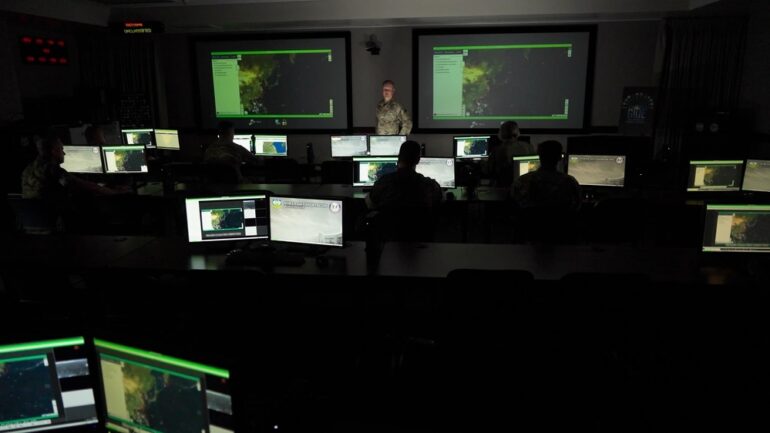TL;DR:
- The Chief Digital and Artificial Intelligence Office (CDAO) launched the sixth Global Information Dominance Experiment (GIDE).
- GIDE aims to enhance globally integrated operations through streamlined workflows and data-driven decision-making.
- Military and civilian personnel from various service branches and combatant commands are participating.
- The experiments focus on testing and optimizing Combined Joint All-Domain Command and Control (CJADC2) solutions using a unified data layer.
- GIDE 6 replicates real-world scenarios to drive innovation and collaboration.
- The CDAO’s efforts demonstrate the transformative power of data, analytics, and AI in modern warfare.
Main AI News:
In a bid to fortify its position in the realm of information dominance, the Chief Digital and Artificial Intelligence Office (CDAO) recently initiated the highly anticipated Global Information Dominance Experiment (GIDE). This grand undertaking, known as GIDE, marks the sixth iteration of its kind and serves as a testament to the unwavering commitment of the CDAO and the Joint Chiefs of Staff to advance the frontiers of digital and AI technologies. Spanning from June 5 to July 26, this ambitious experiment brings together an esteemed group of military and civilian personnel from various service branches and combatant commands.
Dr. Craig Martell, the visionary Chief Digital and Artificial Intelligence Officer, expressed his enthusiasm, stating, “We are thrilled to augment globally integrated operations through streamlined workflows that enable prompt, data-informed, human-in-the-loop decision-making. By strengthening partnerships and collaboration both domestically and abroad, we strive to demonstrate the transformative potential of data, analytics, and AI for our dedicated warfighters.”
Participants of GIDE 6 will convene both physically at the iconic Pentagon and virtually from field offices spanning multiple combatant commands worldwide. These meticulously designed experiments aim to systematically evaluate, optimize, and deploy cutting-edge Combined Joint All-Domain Command and Control (CJADC2) solutions, leveraging a unified data layer that remains independent of any specific vendor. Such an approach facilitates the application and assessment of machine learning algorithms and artificial intelligence models.
Colonel Matthew Strohmeyer, the astute Mission Commander for GIDE 6, shed light on the objectives of this epochal initiative, stating, “GIDE 6 will build upon the invaluable insights gained from GIDE 5 metrics. By emulating real-world operational scenarios within a controlled experimental environment, we aim to continually learn, adapt, and push the boundaries of our existing systems and processes. With an extended duration and amplified collaboration, this iteration holds great promise for the success of both the present experiment and future endeavors.”
The previous iterations of GIDE (GIDE 1-4) were spearheaded by the Northern American Aerospace Defense Command and U.S. Northern Command, serving as catalysts for rapid innovation in critical Department of Defense (DoD) capabilities, alongside other commendable combatant commands. In a bid to further expand collaboration across various combatant commands and international partners, the CDAO revived the GIDE series in 2023 with GIDE 5, laying the groundwork for the remarkable GIDE 6 and beyond.
Conclusion:
The initiation of the sixth Global Information Dominance Experiment (GIDE) by the Chief Digital and Artificial Intelligence Office (CDAO) signifies the Department of Defense’s unwavering commitment to advancing information dominance. This endeavor holds substantial implications for the market, showcasing the increasing integration of digital technologies, data analytics, and AI in military operations. As the experiments continue to push the boundaries of existing systems and processes, it is evident that the transformative power of these technologies will have far-reaching impacts on defense capabilities, industry integration, and collaboration both domestically and internationally. This underscores the growing importance of data-driven decision-making and streamlined workflows in achieving operational success in modern warfare.

